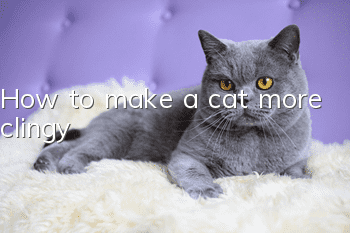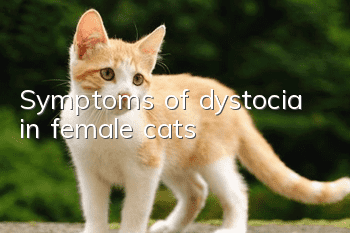What is the reason why cats don’t get fat after eating?

There are several main reasons why cats do not gain weight: 1. Genetic problems. For example, Oriental short-haired cats, Siamese cats, etc. are born with slender bodies and are not easy to gain weight. 2. There are parasites in the cat’s body that compete with the cat for nutrients, so the cat cannot eat fat. 3. Gastrointestinal problems. The cat’s own digestive function is weak and the absorption of nutrients is incomplete. 4. Cats are picky eaters, resulting in unbalanced nutrition. They will naturally not gain weight no matter what they eat. 5. Cats in the developmental period have a strong metabolism and are generally thin, which is normal. 6. Cat food is nutritionally unbalanced and of poor quality, so cats cannot gain weight no matter how much they eat.
1. Genetic issues
Some cats do not gain weight mainly due to genetic problems, such as Oriental short-haired cats, Siamese cats, Bengal cats, Singapore cats and other cat breeds. They are all naturally muscular cats with a relatively slender body shape and a slim face. It’s not easy to get fat.
2. There are parasites in the body
If the cat's usual diet is rich enough, but the body is still very thin, it may be because there are parasites in the body, because parasites will rob the cat of nutrients and prevent it from gaining weight, so it is recommended that the owner must feed the cat regularly Deworm. It is generally recommended that cats be dewormed externally every month and internally dewormed every three months.
3. Gastrointestinal problems
Many cats are born with poor gastrointestinal conditions, which is one of the important reasons why they do not gain weight. If a cat often suffers from diarrhea and vomiting when eating, then this cat has a sensitive gastrointestinal tract. Because the intestinal absorption function is not good, it is not easy to gain weight. If this is the case, you need to feed the cat probiotics, or feed the cat long-term intestinal prescription food to regulate the cat's gastrointestinal tract.
4. Picky eaters
If a cat is picky about food, its nutrition will be unbalanced, and it will naturally not gain weight no matter what it eats. Therefore, owners should help cats develop good habits in daily feeding. Do not often give cats snacks or food with strong tastes such as human food. If the cat gets used to and relies on the taste of these foods for a long time, it will become dissatisfied with cat food. lose interest. Moreover, the food eaten by humans contains a large amount of salt. If cats eat it for a long time, it can easily cause kidney stones, urethral stones and other diseases.
5. In the developmental stage
When cats are 2-8 months old, theyThey are in the developmental period. During this period, they exercise a lot and their metabolism is also very strong. Therefore, cats during the period of development are generally thinner, which is normal and owners do not need to worry too much. You can properly supplement your cat with some calcium, which will help promote bone development. Once the cat passes the embarrassing period, it will slowly grow and gain weight.
6. Cat food is nutritionally unbalanced
Cats can’t get fat no matter how much they eat. In fact, it has a lot to do with cat food. If the cat food fed by the owner is unbalanced in nutrition and lacks fat and protein, the cat will not gain weight no matter how much it eats. Over time, the cat will become skinny and skinny, and its resistance will also decrease. Therefore, when owners choose cat food for their cats, it is best to choose cat food with a relatively high protein content as the main food, so as to meet the cat’s nutritional needs. Cats are carnivores. In addition to cat food, they can also be fed some meat, such as chicken breast, beef, fish, etc., and the cat will grow meat faster.
- Several symptoms of cats before death
- What should I give my cat with gastroenteritis to help him digest?
- Will cats' teeth grow back if they fall out?
- The sound cats fear most
- What does the cat's lying posture mean?
- Does a female cat change its litter because it doesn’t trust its owner?
- Kittens keep making motor noises
- How to wean kittens
- Will cat grass die after a while after planting?
- Can stuffed cats eat fruit?



